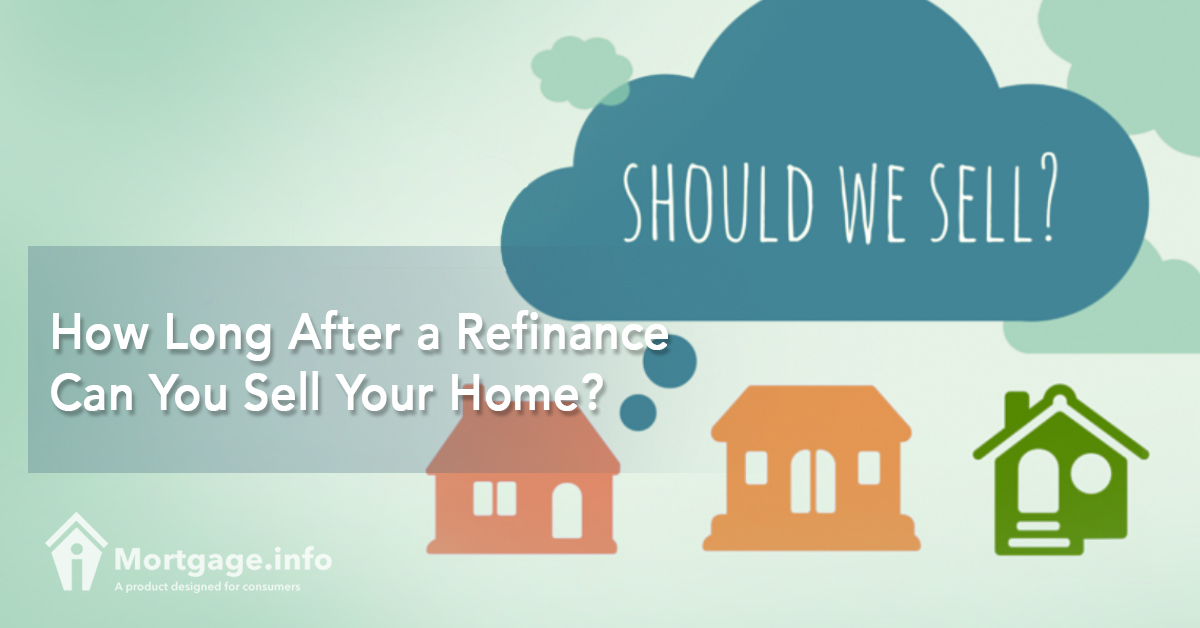Many people refinance their home only to sell it shortly thereafter. There are many reasons homeowners choose to do this. Sometimes a sudden job relocation pops up unexpectedly. Other times, owners purposely refinance to get access to their home equity. With this money, they fix up the home to make it ready to sell. Some homeowners even use the cash from the equity to put earnest money down on their new home.
Are there any rules regarding how long you have to wait to sell your home? Generally, the answer is “no.” You can sell your house at any point. However, there may be some exceptions to the rule. If you have a prepayment penalty, you may want to wait. Luckily, prepayment penalties are few and far between today. The Dodd-Frank Act helped to put an end to them. There are some situations where the penalty is acceptable, though. Learning what to look for to ensure you don’t lose out on the deal can help you make the right decision.
What is a Prepayment Penalty?
First, let’s look at a prepayment penalty. Basically, it is a fee you pay the lender in exchange for paying off your loan early. Today, the maximum prepayment penalty period is 3 years. So, if you do have a prepayment clause on your mortgage, at the most, you have to wait 3 years to sell the home. If you chose to sell the home before then, you may be subjected to a fee. The amount of the fee varies by lender. However, the Dodd-Frank Act rules state the penalty cannot exceed 2% of the loan amount for the first two years. During the third year, the fee cannot exceed 1% of the loan amount.
For example, if you have a $200,000 loan you refinanced six months ago, you would pay $4,000 if you moved now. If you waited until you had the loan for 2 ½ years, you would pay $2,000. After the third year, you would pay nothing.
Figuring Out if You Have a Prepayment Penalty
Today it is very easy to tell if you have a prepayment penalty. By law, lenders must disclose the penalty on the following documents:
- Your monthly billing statement must have information about the penalty
- Your coupon book (if you have one) should contain information
- Any notifications you receive from the lender regarding interest rate adjustments should also disclose the penalty
You could also read your Mortgage Note or Deed, as both documents would disclose the fee, if you have one.
Determining the Right Move Before you Sell Your Home
If you do have a penalty for selling your home too soon, you can figure out if it is worth it. Of course, the smart thing to do is wait it out, but not everyone can do that. If you can’t wait, figure out how much the penalty will cost you. Then determine how much the refinance cost you. Once you know a ballpark figure for what you could ask for the home, you could see if selling is worth it. If you end up upside down because of the closing costs and prepayment penalty fees, it might not be worth it.
A basic rule is to wait until you break even on the closing costs. For example, let’s say it cost you $5,000 to refinance your loan. Your new loan enables you to save $150 per month. In this case, it would take 33 months to start seeing the savings. At the very least, you could wait those 33 months and then put your home on the market. At least, you will gain a little appreciation in the value of the home while you wait. This will make refinancing worth it.
You Can’t Refinance While Your Home is on the Market
Keep in mind, you cannot refinance your loan when you are actively trying to sell it. Some lenders require the home off the market for several months before they will refinance. This is to protect the lender. They want to do whatever they can to prevent taking on new loans that get paid off right away. Lenders make their money on the interest they charge. If you pay the loan off right away, the lender does not make anything on your loan.
Watch the Owner Occupancy Requirements
Some loan programs require you to sign a disclosure stating that you will occupy the property. If this is the case, you could be in legal trouble if you turn around and sell the home too soon. Pay close attention to what you agree to when signing the disclosures. If you state you will live in the home for the next 12 months, you have to do as you said. Some lenders can look at it as mortgage fraud if you go against what you stated on your legal documents.
Whether or not it makes sense to sell your home right after refinancing is a personal decision. You have to weigh all of the fees involved. First, of course, you should check for a prepayment penalty. This could be the most costly part of selling too soon. If it will cost you several thousand dollars to sell early, it may eat away at your profits. You should also consider the closing costs you paid, though. You cannot recover these costs by selling your home. Understanding the amount of profit you have in the home will help you make the right decision.

